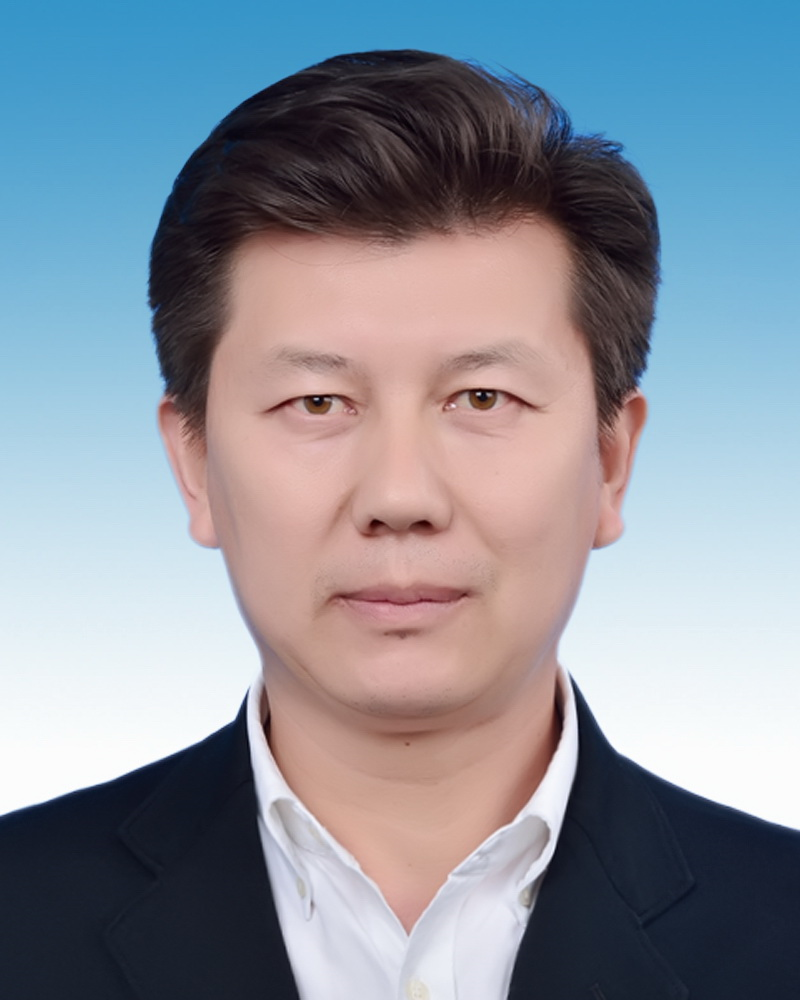

Prof. Feiliang Niu
Dean of School of economics and management, Kashi University, China
Research Area: Econometrics
Brief:
In May 2000, I received PH.D degree in economics from Renmin University of China, supervised by Professor Taiyan Huang (Chang Jiang Scholar). From 2001- 2003 ,I worked at the postdoctoral Station of School of Northwest A&F University. In 2002 ,I studied at Moscow University of Russia as a visiting scholar, whose tutor is Yakov M. Berger. From 2004 to 2011, I worked at the Economic Research Center of Northwestern Polytechnical University. From 2008 to 2009 and from 2016 to 2018, I studied at Michigan State University as a visiting scholar, whose tutor is Professors Jeffery M. Wooldridge and Runsheng Yin. From 2011 to 2020, I worked at the School of Economics of Yunnan University. Now, I work at Kashi University since September of 2020.
I successively published more than 60 academic papers in CSSCI journals, such as "China's industrial economy", "economics", "social science", "economic theory and economic management", "foreign social science, social scientist, the scientific, economic, social," journal of northwest agriculture and forestry university of science and technology (natural science edition), and decision of statistics, "Guizhou social science", "Social Science Research (USA) and other domestic and foreign core journals. Among which 6 papers have been reproduced by Xinhua Digest, Copy Materials of Renmin University of China, and Science and Technology Daily. 4 papers were indexed by ISTP and 8 indexed by EI.
Since 2000, I has hosted over 2 national fund and presided over 4 provincial and ministerial funds. My research Direction: Econometrics; Regional economy; The theory of the firm from the Macro perspective.
Since 2005, I have been the PH.D and master tutor of Quantitative economics, Industrial economics, Western economics and International Business. I have instructed more than 60 homeland and foreign master's students.
Speech Title:
How to use big data and spatial econometric model to explain the high-quality development of western China?
Abstract:
Based on the western region from 2013 to 2020 in 11 provinces (except in Tibet) panel data, build high quality development index evaluation system, information entropy to explore the western region development, by calculation and using spatial econometric model analyzes the upgrading of human capital, industrial structure optimization, they are between the coupling effect on the quality and economic development. The results showed that :(1) the high quality development index showed that the development of Chongqing, Sichuan and Shaanxi in the western region was better, followed by Guangxi, Yunnan and Guizhou, while the development of the remaining provinces and cities was lagging behind, showing a gradual decline from the east to the west. (2) The spatial correlation analysis of the spatial Moran index shows that there is a stable spatial dependence, mainly with "high-high" type and "low-low" type, and there is a spatial polarization trend. (3) The spatial econometric model reveals that without considering the cross-term, human capital upgrading has no significant effect on high-quality economic development, while industrial structure optimization has a significant effect on high-quality economic development. PVAR model is used to find that human capital and industrial structure have a joint effect on economic development. The SPDM model including cross term is established and it is found that the cross effect of the two has a very significant promoting effect on the high-quality economic development.

Prof. Dequan Hung
School of economics and management, Kashi University, China
Research Area: Financial Theory and Policy; Investment and financing
Brief:
After working in colleges and universities, I mainly engaged in the research of financial theory and policy, investment and financial management, occasionally involving the field of management. At present, he has published more than 20 papers in academic journals, presided over or participated in seven scientific research projects, and the monograph "Research on China's Monetary Policy Rules Based on the Term Structure of Interest Rate" was published in August 2022.
Speech Title:
Corporate Executives’ Hometown Connections With Officials Influence Corporate Cash Holdings
Abstract:
The hometown connection is one of the crucial relationships in China’s relational society. Using the data of A-share listed companies, we examine how hometown connections between corporate executives and local government officials affect corporate cash holdings. We find that hometown connections significantly decrease corporate cash holdings. After a variety of robustness tests, this result is still significant. We also find that hometown connections do have a significant impact on corporate cash holdings in provinces with a lower marketization index. One plausible channel for the hometown connections effect is reducing preventive motivation of corporate cash holdings.

Prof. Junfeng Liao
School of economics and management, Kashi University, China
Research Area: Network Marketing, Internet Finance
Brief:
Junfeng LIAO, Ph.D. & Professor in Management, Vice Dean of School of Economics and Management, Kashi University. Since September 2004 until now, he has taught the Department of Electronic Business at South China University of Technology, and has served as a teaching assistant, lecturer, and associate professor.
Dr. LIAO give the course of Research Methodology to postgraduate students, and courses of Management, Marketing, Internet Finance, Economics to undergraduate students.
Dr. LIAO has research interests in Network Marketing and Internet Finance and he has published more than 40 papers in CSSCI, EI index journals and international conferences, and hosted more than 10 important grands such as the National Grant of Philosophy and Social Science, the Guangdong Provincial Grant of Philosophy and Social Science, the Guangzhou Grant of Philosophy and Social Science, and the Key Grant of the Central Universities.
From 2013, Dr. LIAO has directed academic masters in management science and engineering and masters in logistics.
Speech Title:
The Impact of Mental Simulation on Willingness to Pay for Online Content from the Perspective of Service Engineering.
Abstract:
This study builds a model by combining the variables such as the duration of mental simulation, content type and impulsive characteristics. On this basis, it uses empirical research methods such as scenario experiment and matched samples t-test to study the impact of mental simulation on the willingness to pay for online content in the context of digital commerce from the perspective of service engineering, and draws the following conclusions: mental simulation significantly improves users' willingness to pay for online content; For different content types, different simulation duration has different promotion effects; In the influence of mental simulation on willingness to pay, impulsive trait plays a significant role on moderation.

Prof. Wumaierjiang Aishan
School of Economics and Management, Xinjiang University, China
Research Area: prise Management,Corporate finance,Economic Management and Analysis
Brief:
Prof. Wumaierjiang Aishan is a professor and Doctoral tutor of school of Economics and Management, Xinjiang University. He received a bachelor's degree in international trade in 1997 from Sichuan University ,master in finance in 2005 and Ph.D. degree in economics in 2008 from Kyoto University. He has been the special researcher of The Japan Society for the Promotion of Science(JSPS) from 2007 to 2009, visiting scholar of University of Pennsylvania in 2011.He joined to the school of Economics and Management, Xinjiang University again in 2012.His research interests include corporate finance,innovation and sustainable development of Enterprises.
Speech Title:
Do ESG Performance Mater for Trade Credit? Evidence from China
Abstract:
We investigate whether environmental, social, and governance (ESG) performance affects trade credit. The result shows that better ESG performers receive more trade credit. This result remains pronounced after adopting a two-way fixed effects model, using alternative definitions of trade credit and ESG performance, addressing endogeneity issues using an instrumental variable, and considering exogenous shock of the mandatory discourse of ESG performance. Our channel analysis shows that ESG performance draws more attention from analysts and alleviates information asymmetry. We further find that the positive impact of ESG performance on trade credit is more pronounced for firms with better supplier relationship and firms with rapid corporate growth. Overall, our findings provide new evidence that ESG performance is crucial in signaling the willingness of suppliers to provide trade credit for downstream firms.

Prof. Jing Gao
Southwest University, China
Research Area: Ecological Economy
Brief: Gao Jing, Doctor of management, a young scholar in Bayu, has worked in Southwest University for 15 years. In 2017, she visited the Business School of the University of Birmingham in the UK, mainly research the ecological economics of rural regional economic development. She presided two national projects "Research on the mechanism and Countermeasures of returning home and entrepreneurship enabling Rural Revitalization",and she published than 50 papers,4 academic monographsm, such as《How Does the Land Transfer Affect the Income of Small Farmers: Logical Explanation of Reason and Thousand Data Check》《Research on Protection the Rights and Interests of Land-Transfer Peasant:Satisfaction Degree and Protection Strategy》 published on the journal 《China Soft Science Magazine》.
Speech Title:
How about farmers' Entrepreneurship promotes household consumption: logical approach and CFPS empirical analysis
Abstract:
As a critical focus to establish the new development pattern, consumption upgrade in rural areas is inextricably connected with the entrepreneurial activities of the countryside. However, as an investment behavior, entrepreneurship crowd out consumption or inhibit consumption due to failure? there is still a lack of mechanism and empirical analysis about whether entrepreneurship will diverse consumption and promote rural consumption upgrade. Therefore, based on the absolute income theory and hierarchy of needs theory, the paper expounds the functional mechanism from the entrepreneurship of farmers, operational income, family consumption and adjustment by the risk attitude, and validates models of threshold regression and PSM with the data of CFPS-2018. As is indicated in the findings, firstly, the consumption level of entrepreneurial farmers is 18.9% higher than the non-entrepreneurial farmers on average, which can promote the upgrade of developmental consumption but not the enjoying type. What's more, it is descending from the western parts to the middle and eastern parts in the areas. Secondly, the operational income exerts the partial function as an intermediary agent while the risk attitude exploits negative regulation. Risk seekers prefer "delayed enjoyment" while the risk evaders tend to "enjoy pleasure in good time". Thirdly, there is a threshold for the net profit of consumption in entrepreneurship. When the net profit is over 90 thousand yuan, family consumption promoted by entrepreneurship will be improved from 16.6% to 71.4%. On this basis, the paper proposes suggestions to improve the entrepreneurial service and platform construction, develop an entrepreneurial organization with the net profit which is 6 times of the average per capita income, establish a management system for the double risks of social guarantee and agricultural insurance, and facilitate the descending of development consumption. Furthermore, the paper makes contributions to starting from the microcosmic aspect of risk attitude, summarizing the functional mechanism for the influence of entrepreneurship on consumption, further expanding the strategic functions of entrepreneurship for farmers and exploring a new path for promoting rural consumption.

A. Prof. Regina Fang-Ying Lin
Business School, Shenzhen Technology University, China
Research Area: City and real estate, Applied spatial econometric model , Artificial intelligence data analysis
Brief:
Regina Fang-Ying Lin received her PhD in Construction and Real Estate economics from University College London (UCL, 2022 QS Ranked 8th) and is Associated Professor and Post-Doctor supervisor in Shenzhen Technology University (SZTU), and Shenzhen Oversea High-Talent. Before joining SZTU, she worked at the Institute of Planning and Physical Information (IPPI) and Harbin Institute of Technology, Shenzhen (HITSZ). She has about 6 years of experience in teaching under-grates, post-grates, and MPA students. Her students received many awards in Student Innovation and Entrepreneurship Training Program and received offers for research programmes from outstanding universities. Professor Lin also serves as Associate Editor of International Journal of Engineering Business and Management and the reviewer of several SSCI/SCIE journals. Overall, she has more than 10 years of industrial and academic experience in urban and real estate studies, applied spatial econometrics and AI modelling.
Speech Title: The influence of housing investment agglomeration on housing price and habitability
Abstract:
Housing consumption is the most practical livelihood issue related to people's lives, and the changes in housing prices show certain spatial linkages and mutual influence dynamics. This paper analyzes the spatial distribution of residential investment and housing prices using relevant data of 269 cities in China for the past 20 years, establishes a measure of residential investment agglomeration, establishes a spatial econometric model on this basis, studies the influence of residential investment agglomeration on urban housing prices under the setting of a multidimensional spatial weight matrix, and verifies the influence of residential investment agglomeration on urban housing prices through urban livability and market expectations on housing prices. Finally, the regional heterogeneity of the direct spatial effects and spillover effects is tested. The results show that: residential investment and housing prices in Chinese cities have significant spatial correlation; residential investment.
agglomeration has a significant positive contribution to local housing prices and a significant positive spillover effect on surrounding areas; urban livability and market expectations have a moderating effect on housing prices. In terms of regional heterogeneity, residential investment agglomeration shows positive direct and spillover effects on housing prices in the eastern and central regions; positive direct effects and insignificant spillover effects in the western and northeastern regions; livability factors have positive moderating effects on local housing prices in the eastern and central regions, and negative moderating effects on local housing prices in the northeastern region. The market expectation factor positively moderates local housing prices in the eastern and northeastern regions, and insignificantly in the central and western regions. The results of this study suggest that the heterogeneity and spatial correlation of the micro market should be taken into account in addition to the macro level, so as to realize the "linkage" of housing price regulation and avoid the emergence of the waterbed effect.
We warmly invite you to participate in BADS 2022 and discuss with keynote speakers.